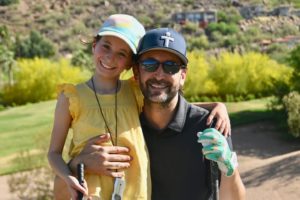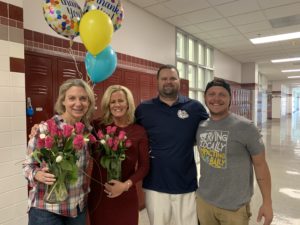Austin Davis, Community Engagement Specialist
“We have built entire systems to fix the exhaust but nothing to fix the engine.”
-Robert Rhoton CEO of Arizona Trauma Institute
I had the pleasure to hear Robert Rhoton speak at the 3rd Annual Adverse Childhood Experience (ACE) Consortium at Phoenix Children’s Hospital. Robert, as well as 4 other speakers, shared their hearts for children and why ACEs are so important to understand.
An ACE is trauma that a child experiences before the age of 18 including:
- recurrent physical abuse
- recurrent emotional abuse
- sexual abuse
- alcohol and/or drug abuse in the household
- an incarcerated household member
- someone in the household who was depressed, mentally ill or suicidal
- having a mother who was treated violently
- having one or no parent
- emotional or physical neglect.
I am not going to try and unpack all of this in one blog post… so, take a deep breath and stay with me here! (If you’d like to learn more about ACEs, you can go to their website by clicking here.) However, it is important to understand the severity of what the children in our community go through. These adverse experiences not only cause emotional stress, but they also physically alter the brain.
“ACEs activate the stress response system disrupting brain and organ development and weakening the defense system against diseases. The more ACEs a child experiences, the greater the chance of health problems later in life.”
The National Average of children who have experienced 2 or more ACEs is 22.8%. Arizona is at 31.1%. Are we ok with that as a community? The problem when anyone talks about change is that it is either too big of a problem to fix or it’s too little, too late. Adults assume these kids are already down a life path that they will not be able to change. Personally, I don’t buy that answer. If it was my child or my family, I would do whatever I could to change that. As a community, we need to offer a solution.
I firmly believe there is an effective strategy…
Mentors.
Stable, consistent, committed adults.
According to these experts, stable relationships with caring adults have the capacity to prevent or reverse the damaging effects of toxic stress.
If we want to see ACEs go down and a reduction in unemployment, crime, and incarcerations, we must invest in our community. Be the stable caring adult that some children do not receive at home. Perhaps you may be the only person that asks how their week is going.
Our community is begging for quality leaders, and it starts with one committed mentor at a time. Will you join us?






